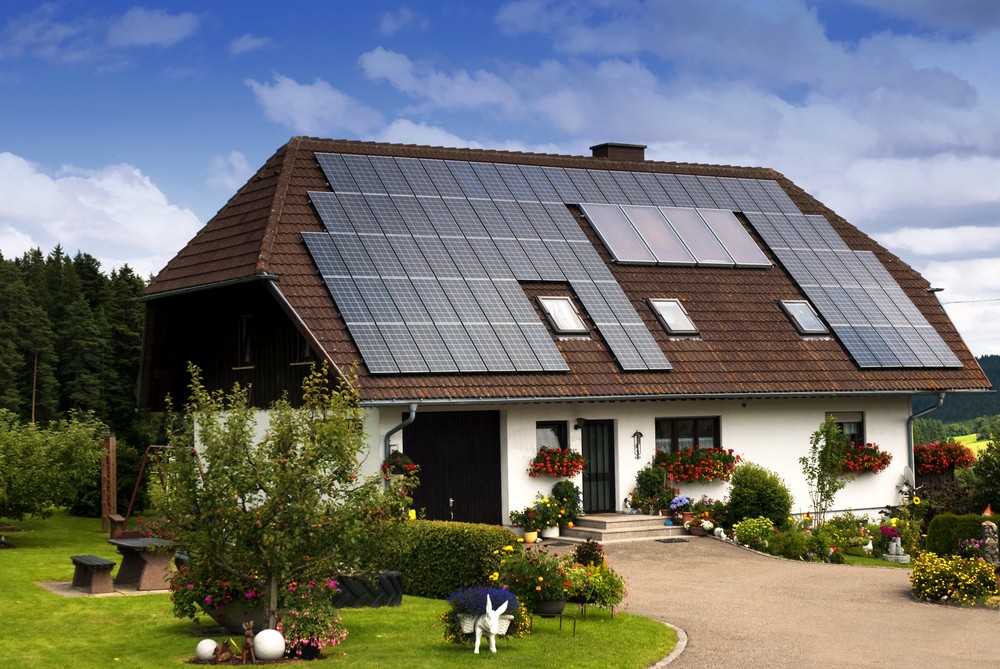Solar energy is a boon in today’s society for two main reasons. Firstly, solar energy is a smart investment and helps reap the benefits instantly. In a time when electricity prices are increasing, using solar energy is sustainable, cost-effective, and promotes savings.
Secondly, climate change is occurring at a much faster rate than previously anticipated, and we are all aware of its drastic impact on the environment. Using solar energy in such a time can tackle climatic issues and global warming.
 Using solar energy to power homes is vastly advantageous to both the end-user and the environment. Furthermore, solar energy is renewable and does not release any greenhouse gases or hazardous byproducts. So, a solar power system essentially enables homeowners to save both their electricity bills and the environment.
Using solar energy to power homes is vastly advantageous to both the end-user and the environment. Furthermore, solar energy is renewable and does not release any greenhouse gases or hazardous byproducts. So, a solar power system essentially enables homeowners to save both their electricity bills and the environment.
Choosing the right solar power system is important because there are different offerings for different use-cases. Reputed brands like Luminous offer end-to-end rooftop solar power system solutions that are suited for all residential needs.
Choosing the Right Solar Power System
Homeowners who want to power their homes with solar energy first need to understand the types of solar power systems and choose one basis their need. Installing a solar power system without analyzing the requirements will end up wasting resources and will hardly be a value-for-money proposition. The solar power system should be efficient, flexible, and offer maximum solar usage.
Typically, solar rooftop power systems are most common for residential purpose. In a rooftop power system, photovoltaic panels (commonly known as solar panels) generate electricity and are installed on top of a house. Solar rooftop power systems are of two types:
- On-Grid System
Simply put, on-grid solar systems work in conjunction with the mains electricity supply, i.e., the grid. The homeowner consumes the electricity generated by solar panels, and the electricity left over is fed back to the grid. A net meter keeps track of the amount of electricity consumed by the owner and the amount fed back into the grid. The difference is then reflected in the electricity bill.
- Off-Grid System
Off-grid solar systems are connected to a battery that stores the electricity generated by solar panels. The stored energy is converted to AC and allows homeowners to run appliances during power cuts. In high power cut areas or no grid areas, off-grid systems are highly popular.
Now that you know about the two types of solar power systems, here’s a segregation based on their use-cases.
Solar power solutions are for the following needs:
- High-Power Cuts – Homeowners who want a solution for high-power cuts can buy a battery-based solar power system that charges the battery using both solar panels and grid.
- Reduce Electricity Costs – To save on electricity costs, a grid tie solar power system will work best. It uses solar power to power home, and all excess power is sold to the grid.
- Upgrade to Solar with Existing Power Backup – Homeowners who already have a UPS and battery can use a retrofit system to power their homes with solar energy.
Conservation of energy will only work if the right solar power system is in place. Reputed brands like Luminous offer solar power systems for all purposes, including the ones mentioned above. They offer best-in-class efficiency, pure sine wave output, flexibility to use different types of batteries, and a 25-year warranty! Both on-grid and off-grid are available and curated as per your need.
What’s the Wait For?
Solar energy is the future and truly one of the practical ways to save energy and contribute towards a cleaner planet. It can be stored in batteries, and by using the ways mentioned above, homeowners can reduce their consumption even further. The world is calling for judicious use of energy, and homeowners with solar power systems should also contribute their bit. So, as a homeowner, if you have not yet looked at solar energy as a viable option, it is time to jump in the future and get one.






